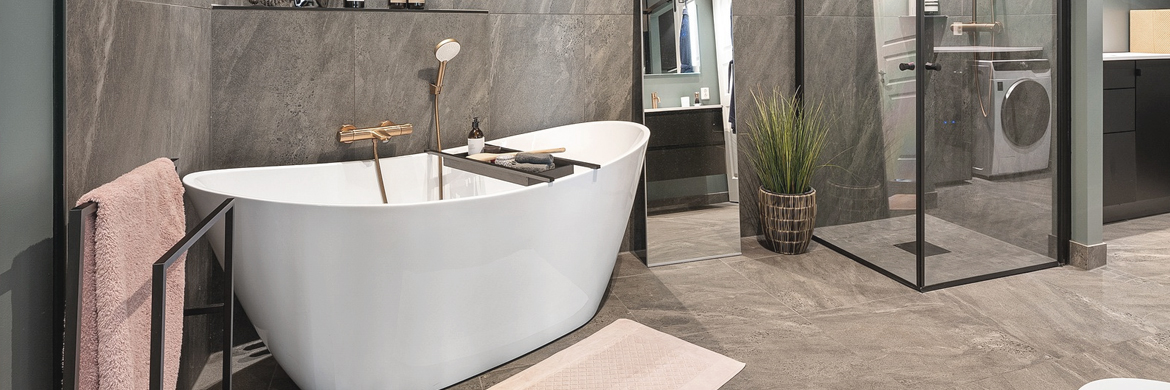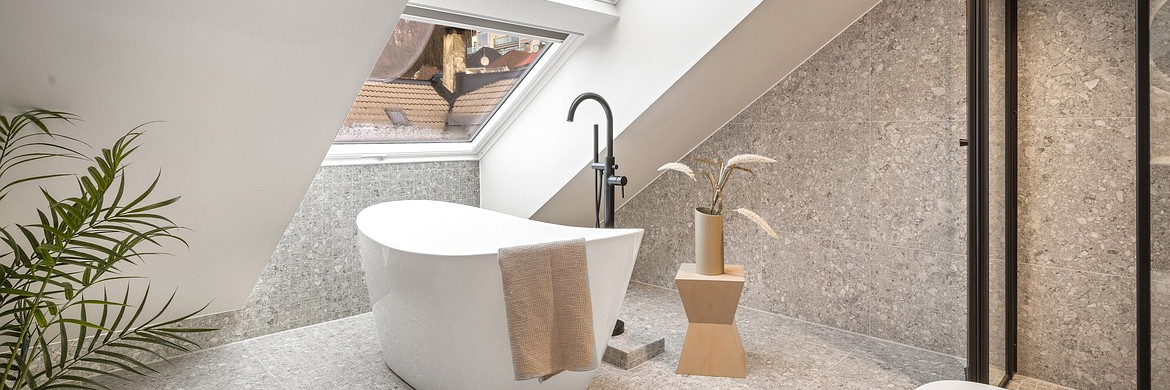Underfloor Heating for Tiles
28th Jun 2024
Both electric underfloor heating and water underfloor heating work exceptionally well with tile floor finishes. Tile floor finishes such as ceramic or porcelain are the go-to choice for many. This is because they are known for being hard-wearing, there are many designs and styles to choose from and are most importantly excellent at conducting heat. This allows for fast heat-up times while also retaining heat, which is important for creating an efficient heating system.
Which system is best? Electric or Water Underfloor Heating?
The best underfloor heating system for you however depends on your project. If you are considering renovating your bathroom, an electric system might be the best choice. This is because it is less complicated to install and you may only want to use it as a secondary heat source to warm your tiles underfoot.
What are the Best Tiles for Underfloor Heating?
Porcelain vs Ceramic Tiles
Thermal Conductivity:
There isn't much between them for thermal conductivity, but Porcelain tiles are slightly better than ceramic tiles at conducting heat which means porcelain tiles offer a quicker heat-up time and are great at retaining heat.
Durability:
Ceramic tiles are generally less durable than Porcelain tiles which makes them more suited for use in low-traffic areas. Porcelain tiles are more suited to high-traffic areas and are often used in commercial showers due to this.
Water Absorption:
Porcelain tiles offer a low absorption rate which makes them resistant to moisture and ideal for wet areas. Ceramic tiles unfortunately have a higher water absorption rate which means proper sealing is required to prevent moisture-related issues.
Cost:
Ceramic tiles offer a budget-friendly option which makes them ideal for cost-conscious projects. Porcelain tends to be more expensive but they offer superior properties which may warrant the extra budget.
Conclusion:
Porcelain tiles offer better durability with low water absorption and efficient heat transfer which makes them ideal for high-traffic and wet areas with underfloor heating. Ceramic tiles however are more affordable but don't offer the same durability as Porcelain. They also have higher water absorption and thermal resistance.

What Tiles Shouldn't Be Used with Underfloor Heating?
Most tiles are great for use with underfloor heating but there are some exceptions to be aware of. Quartz tiles are made with a resin component which unfortunately can react badly to heat fluctuations which can cause movement and in some cases damage. Any tile that uses resin should be used with caution and it is important to consult the manufacturer to ensure they are compatible with underfloor heating.
Are Thick Tiles Suitable for Underfloor Heating?
Yes! The thickness of the tiles has little to no impact on the heat output of underfloor heating systems. The only thing to bear in mind is that while the heat output isn't affected, thicker tiles may lead to longer heat-up times.

